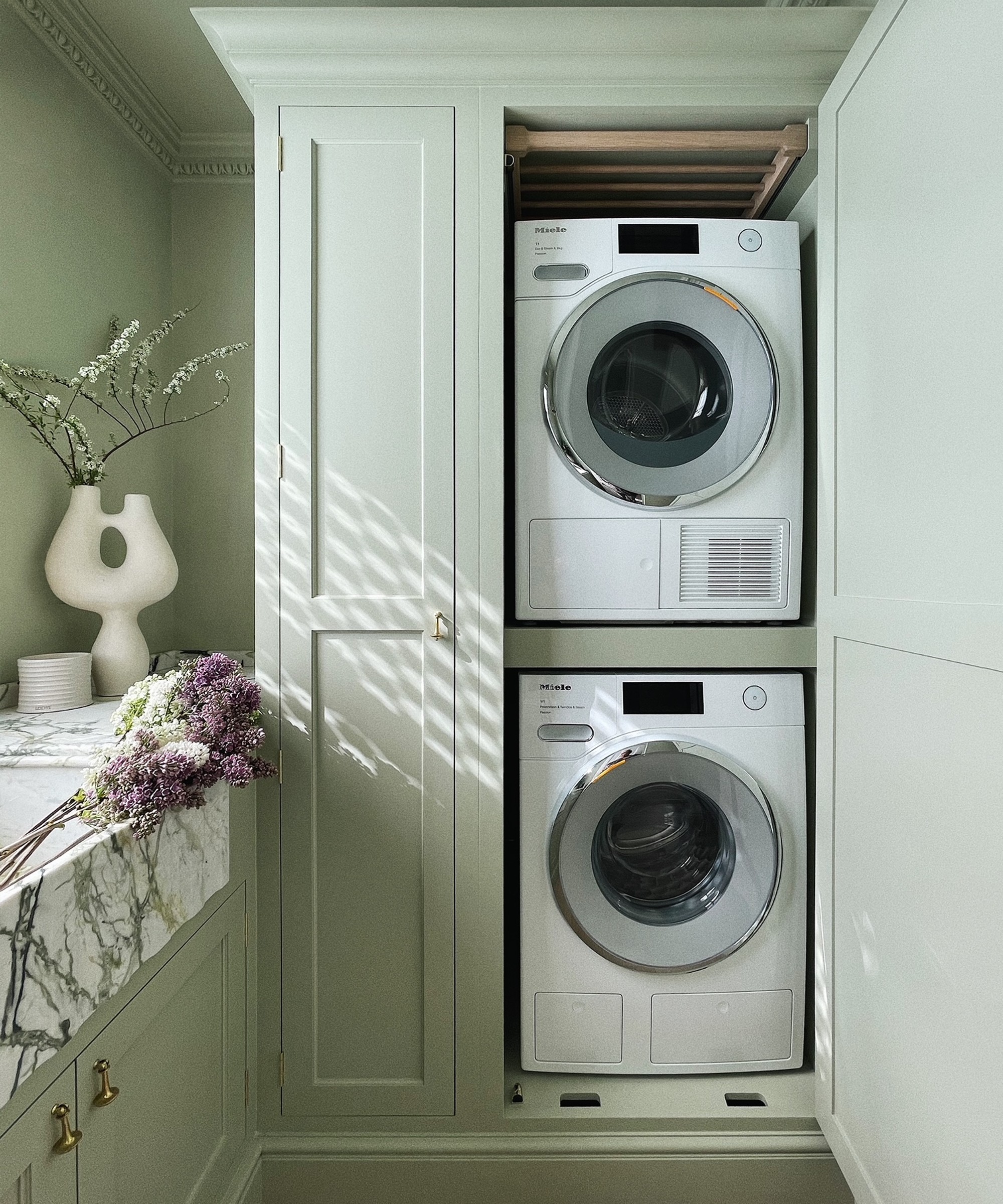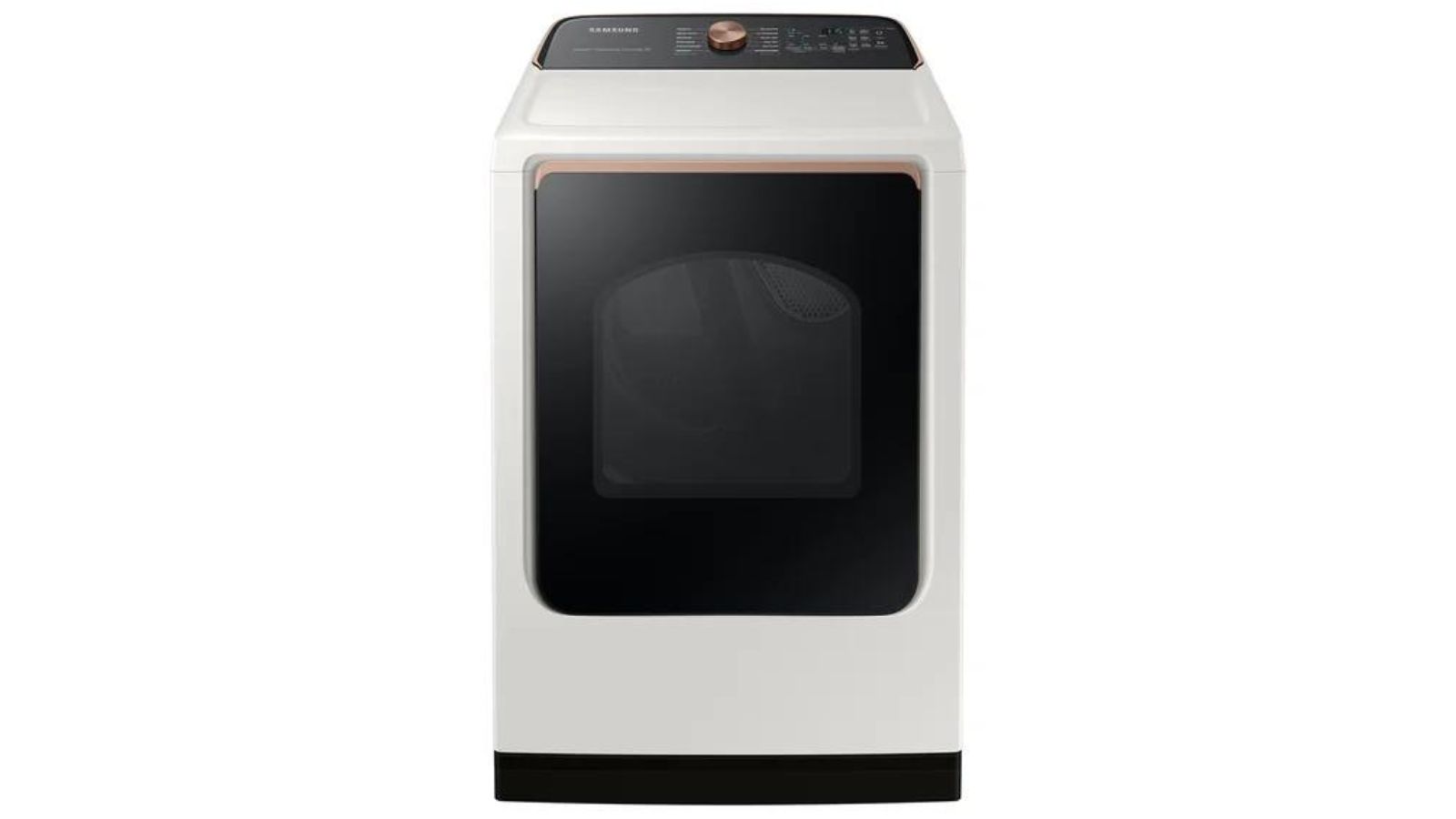The most expensive appliances to run – according to the energy experts
These common home appliances are putting serious pressure on your bills – here’s how to save a little money


When winter rolls around, we all become a little more focused on just how much our energy bills are costing, but did you know that it is some of our most important appliances that are running up our totals?
Unfortunately, some of the most expensive appliances to run are also some of the most essential, so it is important to know some smart money-saving tips to help cut energy bills at home.
Here, appliance experts have shared their thoughts on the four most expensive appliances to run, and what you can do to save money.
The most expensive appliances to run
Of course, choosing energy-efficient appliances is one of the best ways to save money at home, but there are several things you can do with your existing appliances to make the most of the energy they use for less.
1. Tumble dryers

Although an everyday essential in many households, a tumble dryer is one of the most expensive appliances in any household, warns Andrew Meyer, appliance expert and CEO of Arbor.
‘Although tumble dryers are the best way to dry clothes quickly, if you can, consider air drying your clothes instead. If that’s not an option, consider picking a day or two each week to do your laundry. Bulk washing and drying clothes can save electricity overall.’
Andrew also suggests helping clothes dry faster by putting a dry towel in the dryer, too – a common hack to help with moisture absorption.
Design expertise in your inbox – from inspiring decorating ideas and beautiful celebrity homes to practical gardening advice and shopping round-ups.

This dryer is rated our best dryer overall and is energy star rated, making it perfect for those looking to save a little on their energy bills throughout the year.
2. Fridges and freezers

Because they are running constantly, refrigerators and freezers are some of the worst offenders for upping our energy bills, points out Karolina Attspondina, co-founder and CEO of We Do Solar.
She recommends ensuring that these appliances are not set too cold so as not to overwork them, and familiarizing yourself with some fridge organizing tips to make the most of the coldest spots for important produce – also helping to reduce food waste at the same time.

Karolina Attspodina, Co-founder of We Do Solar, is a Ukrainian entrepreneur based in Berlin. She is on a mission to make home grown solar energy available and accessible for everyone – whether you rent or you own a home.
3. Internal AC
Built-in HVAC systems are some of the most expensive appliances to run in your home no matter the season, but there are some top tips you can try to keep them running more efficiently, says Anthony Carrino, home improvement expert at Trane Residential:
‘Adopting a seasonal maintenance routine for your HVAC system will help make sure that your system is running efficiently. By ensuring that your HVAC system is clean and clear, homeowners can reduce the amount of energy being used and in turn, decrease your monthly energy bill (and save you even more over time). If you notice any issues (i.e., hear strange sounds, it won't turn on, are having issues with your thermostat, etc.), contact a local professional who can assess the situation and make a recommendation for next steps.’
It also doesn't hurt to read up on the ideal temperature to set your AC too so you are not overworking it, and turning off the AC at night.
4. Stoves and ovens

Another everyday essential appliance raising our energy bills are cookers and ovens, says Karolina Attspondina of We Do Solar.
The best way to reduce the costs of these appliances is to pick the best ovens and stoves you can and switch out some traditional cooking methods for the cheapest kitchen appliances to run – such as the best air fryers which are far cheaper to use than a conventional oven.
When trying to save money with existing appliances, Karolina suggests that you ‘use the right size pots on burners, utilize a microwave or toaster oven for smaller meals, and ensure the oven door seal is intact to prevent heat loss and stop your appliances from working overtime and consuming more energy.’
FAQs
Do electric kettles use a lot of electricity?
Electric kettles do use some electricity to heat up your water, but they use a lot less than if you were to heat up water on your stove, or even to heat up water to boiling in a microwave. Boiling the exact amount of water you need, and picking an energy-efficient kettle also helps reduce your energy consumption, as they often boil water a lot more quickly than other appliances, reducing how long you have to have it turned on.
Does a washing machine use a lot of electricity?
Washing machines can vary widely in energy consumption depending on the make, model, and age. Despite this, washing machines do typically hog energy in some way or another, given that it has to run multiple functions at once to get your clothes clean. You can reduce how much your washing machine costs you to run by picking the best washing machine for energy savings and running shorter, cooler washes less frequently to reduce the time your machine is on and avoid having to spend energy heating up water.
Alongside these heavy energy users, there may also be some vampire appliances around your home that are secretly costing you money. It can be smart to locate common offenders through your space and ensure they are also turned off when not in use to help reduce bills and save energy.

Chiana is Homes & Gardens’ kitchen appliances editor. With a lifelong passion for cooking and baking, she grew up experimenting in the kitchen every weekend with her baking-extraordinaire Mom, and has developed a great understanding of how tools and appliances can make or break your ideal relaxing kitchen routine.